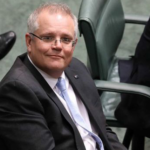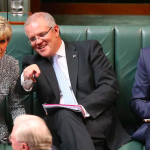Union-Busting Legislation Passes Lower House

The Fair Work (Registered Organisations) Amendment (Ensuring Integrity) Bill 2019 has passed the lower house of Federal Parliament, with the Coalition hoping to capitalise on the recent controversy surrounding CFMEU Victoria leader John Setka to gain power to control and even deregister trade unions.
Parliament rejected a similar bill in 2017, but is vying for the support of four out of the six senate cross benchers – being Cory Bernardi, two Centre Alliance senators, Jacqui Lambie and two One Nations senators to see the bill through the upper house.
The proposed law
The Bill would make it easier for the government to regulate both the constituency and operations of trade unions across the nation, by:
- Expanding the categories of offences for which a person can be automatically disqualified from holding office in a union to include conviction of a serious offence, being any offence that carries a penalty of five years imprisonment (which spans a wide variety of offences, including stealing, assault occasioning actual bodily harm and affray);
- Introducing a regime whereby the Federal Court can disqualify individuals from holding office for a range of reasons, including repeated contraventions of industrial laws, failing to take reasonable steps to stop an organisation from breaking the law, or where they are otherwise deemed not to be a fit and proper person to hold office;
- Introducing the criminal offence of running for, or continuing to hold, office, or acting as a “shadow office” when disqualified from holding office;
- Empowering the Federal Court to cancel the registration of a union for a range of reasons including “improperly” conducting the union or breaching industrial laws, including holding unlawful or unauthorised strikes;
- Expanding the grounds upon which the Federal Court can regulate a union’s governance;
- Empowering the Federal Court to appoint an administrator to union; and
- Introducing a public interest test for the amalgamations of unions, which makes it more difficult for unions to come together and thereby increase their power.
Timing of the Bill
Many believe the Bill is direct response to the actions of John Setka of the CFMEU, with Industrial Relations Minister Christian Porter repeatedly calling his conduct and that of the union “appalling” – saying the union has repeatedly flouted industrial relations laws through protests and other activities, putting projects at risk.
However, the Coalition-dominated Human Rights Committee that is looking into the Bill says it unduly puts workers’ rights at risk. Liberal MP Ian Goodenough chairs the committee, sitting alongside four Coalition members, three Labor members and one Greens member.
The Committee believes the legislation’s provisions regarding disqualifying officials and deregistering unions is “likely to be incompatible with the right to freedom of association”.
Labor’s Industrial Relations spokesperson, Tony Burke, has expressed the view that union representatives “should be chosen by workers – not by Scott Morrison.”
Union Response
ACTU president, Michele O’Neil, has called the Bill a dangerous attack on the ability to run democratically elected unions, that threatens the ability of workers to win pay rises, protect jobs and promote workplace safety.
“If unions are shut down or silenced, who will stand up to the powerful, make sure workers get their rights and fight to improve workers’ rights?” she stated. “The Morrison government has overseen raids on journalists and is now attacking working people’s freedom to run their own unions.”
Other unions have pointed to the absurdity of having strict controls on when, where and how protests can be undertaken.
For example, the Secretary of the Australian Nursing and Midwifery Federation Union, Annie Butler, says the new rules would put her union at risk of deregistration if nurses take industrial action to ensure patient safety – a situation which is manifestly against the interests of the public.
All in all, the Bill appears to be yet another mechanism for increasing state power, protecting the interests of big business and suppressing dissent by the ‘lower echelons’ of society.







